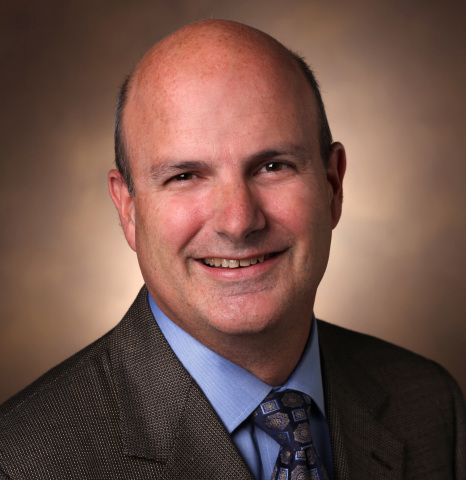REDWOOD CITY, Calif.--(BUSINESS WIRE)--Impossible Foods announced today the hiring of Vanderbilt University Biochemistry Department Chair Dr. John D. York, Ph.D. as Chief Science Officer at the world’s leading food technology startup.
Considered the top environmental startup, Impossible Foods’ mission is to turn back the clock on global warming, stop the extinction crisis and fix the global public health emergency by making our global food system sustainable. Impossible Foods’ scientists’ best known achievement to date, Impossible™ Burger, tastes like beef and is hailed as a triumph of food engineering -- the result of nearly a decade of basic science and hard-core research and development in the company’s headquarters in California’s Silicon Valley.
Under York’s leadership, Impossible Foods will continue to build its food technology platform and expand basic research capabilities to accelerate next-generation products. The company also plans to continue to invest heavily in R&D, doubling the number of scientists on the team within a year.
To apply for R&D and engineering jobs at Impossible Foods, click here.
York’s first day at Impossible Foods will be Jan. 4. He will serve on Impossible Foods’ senior leadership team and oversee research and development, and product innovation. He will report directly to Impossible Foods CEO and Founder Dr. Patrick O. Brown, M.D., Ph.D.
“Throughout his career, John has contributed to discoveries in biochemistry thanks to his curiosity and risk tolerance,” said Brown, Stanford University Professor Emeritus. “Just as important, he’s a proven and strong mentor and team leader. I’m confident that John will make an immediate, positive contribution and quickly become an inspiring role model within our expanding R&D team.”
Biochemistry leader, protein engineering pioneer
York, a former Investigator for the Howard Hughes Medical Institute, has led the Department of Biochemistry at Vanderbilt University since 2012. His team paved the way for discoveries in protein structure and function, cell signaling and molecular genetics. York’s laboratory studies cellular signaling networks; it defined an evolutionarily conserved intracellular code required for the proper adaptation of cells and development of organisms. York’s team helped discover how cells enhance signaling specificity through generation of diverse chemical messengers.
The Midwest native, who will relocate from Tennessee to California, received his undergraduate degree from the University of Iowa and his Ph.D. in Molecular Cell Biology and Biochemistry from Washington University in Saint Louis.
“The opportunity to use biochemistry to save the planet is a spectacular motivation,” York said. “That Impossible Foods is rooted in discovery science and engineering as a key innovation platform resonates with my core values and life-long pursuits in research. It’s an honor and privilege to be part of the team, and I look forward to the limitless future possibilities.”
Impossible Innovation
Impossible Foods has an unrivaled intellectual property portfolio with more than 250 patents and patents pending. Its intellectual property includes methods to decode and reverse-engineer the molecular foundations and entire sensory experience of animal-derived meat, including how it tastes, cooks, sizzles and smells -- and how to recreate the experience without animals.
Named Inc. Magazine’s company of the year and one of Time Magazine’s 50 Genius companies, Impossible Foods has raised approximately $1.5 billion since its founding in 2011, including $700 million in two rounds this year, which it will use to fund the expansion of its technology platform and R&D team.
Part of this investment will go towards the “Impossible Investigator” program, which asks scientists at all career stages to envision an all-new research program within the broad scope of Impossible Foods’ mission. They can propose anything from short-term strategies to accelerate the optimization of plant-based milk or steak or fish, to longer-term ideas for a vastly improved supply chain of plant proteins and other ingredients, including novel crops and agricultural practices. Impossible Investigators may have backgrounds in the life sciences, physical sciences or diverse engineering disciplines -- or they may be data analysts, neurobiologists or experimental psychologists.
In addition to the inaugural class of 10 Impossible Investigators, Impossible Foods also has about 50 immediate openings for scientists, engineers and other R&D professionals to join existing projects; more will be posted throughout the end of the year and beyond.
Scientists in the company’s R&D center, whose operations combine the best features of academic and industry labs, bring together ideas and technology from diverse areas of modern science to make fundamental discoveries and invent new ways to replace every major category of animal-derived food products with plant-based alternatives that are better for people and the planet, including dairy, seafood, chicken, steak and more.
About Impossible Foods:
Based in California’s Silicon Valley, Impossible Foods makes delicious, nutritious meat and dairy products from plants — with a much smaller environmental footprint than meat from animals. The privately held food tech startup was founded in 2011 by Patrick O. Brown, M.D., Ph.D., Professor Emeritus of Biochemistry at Stanford University and a former Howard Hughes Medical Institute investigator. Investors include Mirae Asset Global Investments, Khosla Ventures, Bill Gates, Google Ventures, Horizons Ventures, UBS, Viking Global Investors, Temasek, Sailing Capital, and Open Philanthropy Project.
Impossible Foods was Inc. Magazine’s company of the year and one of Time Magazine’s 50 Genius companies. The flagship product, Impossible Burger, was named top plant-based burger by the New York Times and received the Food and Beverage (FABI) Award from the National Restaurant Association.
More information:
Media kit:

